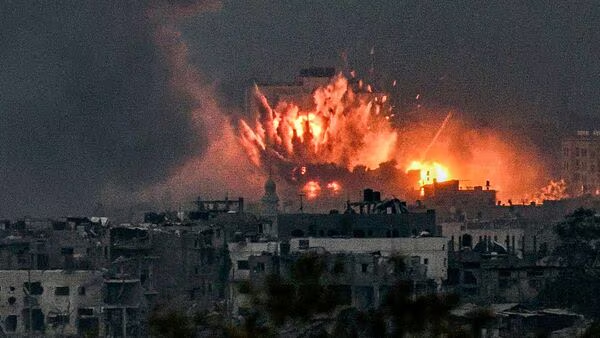Tensions Escalate: Iran Fires Ballistic Missiles at Israel Amid Ongoing Conflict
In a dramatic escalation of hostilities, Iran launched a barrage of ballistic missiles targeting Israel, igniting fears of a wider regional conflict. The Israeli military reported that while its air defenses intercepted many of the missiles, a few struck central and southern areas, resulting in minor injuries, primarily from falling shrapnel. This marked a significant moment in the ongoing conflict that has seen rising tensions between Israel, Iran, and their respective allies.
Initial Reports and Damage Assessment
Israeli army spokesman Daniel Hagari confirmed that most of the missiles were intercepted before reaching their intended targets. However, emergency services reported injuries in the Tel Aviv area and scattered minor injuries elsewhere. This incident highlights the persistent threat faced by Israel, particularly as the ongoing conflict with Hamas in Gaza continues to evolve.
The Iranian state media has claimed that the missiles were specifically aimed at Israeli tanks in the Netzarim Corridor, an area critical for separating northern Gaza from the south. While the Iranian Revolutionary Guard Corps (IRGC) hailed the attack as a success, independent verification of these claims remains elusive.
Geopolitical Implications
Geopolitical analysts are sounding alarms over the potential consequences of this escalation. HA Hellyer, a prominent analyst, emphasized the instability of the region and warned that a miscalculation could lead to an all-out war between Israel and Iran, alongside their respective allies. He criticized the aggressive rhetoric from certain Israeli and American officials, suggesting that it fails to consider the human toll on civilian populations.
“The populations of the region will be the ones that pay the price for this adventurism,” Hellyer stated, urging a more cautious approach in dealing with such volatile situations.

Military Readiness and Strategic Movements
In response to the Iranian missiles attack, Israel temporarily suspended its airspace, only to reopen it shortly thereafter as the immediate threat diminished. Meanwhile, Lebanon’s transport minister announced a two-hour closure of Lebanese airspace, reflecting the heightened tensions in the region.
U.S. Secretary of Defense Lloyd Austin communicated with his Israeli counterpart, Yoav Gallant, prior to the missile launch. The Pentagon disclosed that the U.S. had increased military readiness in the area, signaling serious concerns over Iran’s aggressive actions. Austin warned of “severe consequences” should Iran choose to escalate its military engagement with Israel further.
Historical Context and Recent Developments
This latest confrontation is rooted in a complex history of conflict and retaliation. The last notable Iranian missiles attack on Israel occurred on April 13, following an Israeli operation that killed five members of the IRGC in Damascus. During that incident, Iran chose to issue warnings to the U.S. and other Western powers, a stark contrast to the surprise of the recent missiles attack.
Analysts speculate that Israeli Prime Minister Benjamin Netanyahu’s recent military operations against Hamas and Hezbollah may have provoked Iran’s current response. By pushing Iran into a military confrontation, Netanyahu could be attempting to gain a pretext for striking Iran’s nuclear facilities—an objective that has long been part of Israel’s strategic calculus.
The Broader Impact on Civilians
As tensions mount, the impact on civilian populations remains a primary concern. The Israeli military has instructed residents in areas close to the conflict to seek shelter, though they later advised that it was safe to leave their shelters, underscoring the unpredictable nature of the situation. This cycle of violence inevitably places innocent lives at risk, exacerbating the humanitarian crisis that has already taken a severe toll on the region.
Moreover, the potential for a broader military confrontation looms large, with the possibility of involving other regional players. As Iran flexes its military capabilities, the stakes increase not only for Israel but for all nations in the Middle East.
click here to visit another interesting articles
Looking Ahead
As the situation continues to develop, the international community watches closely. The delicate balance of power in the region is increasingly precarious, and any miscalculation could have far-reaching consequences.
The immediate future remains uncertain, with Israeli officials promising a robust military response to Iranian aggression. The call for restraint from various international leaders will be crucial in preventing a further escalation that could spiral into a larger conflict.
In conclusion, the missiles attacks mark a critical juncture in the ongoing struggle between Israel and its adversaries. With Iran demonstrating its willingness to engage militarily and Israel poised to respond, the risk of a broader confrontation looms large. It’s a situation that demands urgent attention and diplomatic efforts to de-escalate tensions before they reach a point of no return. As we observe the unfolding events, the focus must remain on protecting civilian lives and finding a path toward stability in a deeply troubled region.
For more live update you can visit Aljazeera
Thanks for reading…..











